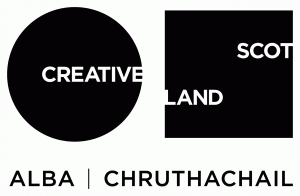Slapping the creative wrist
Culture Secretary’s letter to Creative Scotland
By Thom Dibdin
 Over recent weeks there has been a regular stramash in Scottish performing arts circles over the decision to replace flexible funding for 49 independent arts organisations (most of them theatre or dance companies) with project funding.
Over recent weeks there has been a regular stramash in Scottish performing arts circles over the decision to replace flexible funding for 49 independent arts organisations (most of them theatre or dance companies) with project funding.
Just in case you haven’t been following the story, Charlotte Higgins has written a good round up of the events for the Guardian here together with strong analysis on why it matters for the arts across the UK, in her Guardian blog, here.
For a while it appeared that the Culture Secretary, Fiona Hyslop, was not going to make any intervention into the whole affair. She has, however, used a letter to the chair of Creative Scotland’s board, Sir Sandy Crombie, to give what some might deem to be a mild slap on the wrist, as reported by Phil Miller in the Herald on Saturday 7 July 2012.
The Annals has obtained a copy of this letter and here reproduces its contents without edit or further comment.
July 2012
Dear Sir Sandy
1. Introduction
Firstly, may I offer my sincerest thanks to you, your fellow Board members and all the staff at Creative Scotland for your commitment, energy and determination throughout the first two years of Creative Scotland. The demands made of a new national public body will always be challenging but Creative Scotland has both fulfilled its formal administrative requirements in this period and set a new direction and model with the publication of your Corporate Plan, with much support from the sector and which I approved in March 2011. There have also been many successes and achievements, too many to list here, which we all welcome and celebrate. I also recognise the challenges for all in moving to a new delivery model and I know you are taking, and will continue to take seriously the feedback from the sector. You are right to do so and it is what I expect from you.
I fully recognise the role of the Board and the actions of the Chief Executive recently in heeding the concerns of the sector and adjusting approaches accordingly. This will need to be monitored. It is important that Creative Scotland’s planning and risk management processes, anticipate and respond to any emerging issues; and that effective communications and stakeholder engagement is given early consideration to ensure on an on-going basis effective and early response to the concerns of the sector.
2. International
Excellent work has been started by Creative Scotland on your international agenda. Creative Scotland’s role in building the global reputation of Scotland’s art and culture will be even more important during and after the Olympic Games and during the run-up to the Commonwealth Games and our next year of Homecoming in 2014.
I would expect to see this role develop over the next 12 months in order to achieve milestones on the route to delivering the 2014 cultural programme. Your relationships with the sector and a wide range of organisations including Scottish Development International, VisitScotland and the British Council should continue to be strengthened to underpin this.
3.Youth Strategy and other opportunities
At my request, Creative Scotland is preparing Scotland’s first Youth Arts Strategy and developing proposals for a National Youth Arts Centre in Glasgow. Your work on taking these forward should boost creative and cultural opportunities for Scotland’s ·children and young people.
As the Creative Industries is identified as a priority sector in the Scottish Government’s economic strategy, in the next year I would expect to see tangible evidence of the steps taken by Creative Scotland to contribute to increasing activity and impact in the creative industries across Scotland. I would also expect key deliverables in supporting youth employment in the arts.
4. Wider relationships
The Scottish Government encourages all the cultural public bodies to build strong, direct and sustainable relationships with the culture sector itself. Creative Scotland is critically important in securing and maintaining an environment which enables artists and creators to flourish, and also to encourage better access for the public across Scotland to a wider range of high quality artistic work, experiences and creative content.
Creative Scotland has made huge progress in its first two years to champion Scotland’s arts, culture and creative industries. Creative Scotland needs to give even greater emphasis to listening to and, wherever appropriate, acting upon, the concerns of the sector. It is important that relationships are maintained, not just with those you fund, but with the whole sector – and indeed with others associated with the sector and with the ambitions of Creative Scotland. This is important in Scotland where our cultural activity is so valued and our cultural community inter-connected. Partnerships with artists and with local government recognising its key role, is a fundamental part of this.
Over the next year I would expect these relationships to be strengthened and that Creative Scotland will work with its sector collaboratively, exemplifying relationships of trust and respect. It is important that there is wider understanding, appreciation and celebration of our cultural achievements and of our artists and other creative practitioners. Creative Scotland should help the sector to find ways of doing this at national and local level.
5. New administrative requirements
A number of important statutory requirements which take effect from this year, have been put in place over recent months. I would draw your attention to the need for Creative Scotland to meet these requirements. These include:
• The statutory duties on public bodies under the Climate Change (Scotland) Act 2009 and, in particular the need for Creative Scotland to produce annual Public Sector Sustainability Reports.
• The Regulations placing specific duties on Scottish Public Bodies to enable the better performance of the public sector equality duty in the Equality Act 2010, which came into force on 27 May 2012
In addition, you may also be aware that the Scottish Government’s Statement of Corporate Expectations 2012-13 and Public Bodies Joint Improvement Plan will shortly be issued to all public bodies (private advance copies of both documents were sent to Chief Executives on 15th June 2012).
The Statement of Corporate Expectations 2012-13 emphasises that public bodies should deliver continuous improvement by acting across the following issues: Public Service Reform and Community Planning; Alignment to the National Performance framework; Youth Employment; Finance; Fraud Prevention; Procurement; Organisational Development and Human Resources.
Lastly, I would like to re-iterate my thanks to you and the board for your hard work over the last two years and I am very much looking forward to working with you over the next year and beyond.
FIONA HYSLOP
Edited 10 July to include link to Herald article.


















the letter before it was ‘refreshed’ by the spads
Dear Sandy
CS
While broadly supportive of the body’s work I can’t help feeling that some major missteps have taken place all the past few weeks. Clearly, someone has been asleep at the switch. As you can imagine the FM wants answers and the matter resolved as a matter of the greatest urgency. Cultural identity is a major plank of the independence referendum programme and we don’t want any local difficulty getting out of hand. Full transparency, at this juncture, is not too crucial.
To that end I’m sure you will agree that CS should display a greater emphasis on listening to the concerns of this increasingly turbulent sector. In short more receive and less transmit.
I expect CS to work collaboratively, exemplifying robust relationships have clear, trust, respect etc etc.
The FX fracas aside we simply cannot tolerate anything that shows us in a poor light especially not at this crucial point on the road to 2014. This crisis needs shut down.
Can you please emphasise, in no uncertain terms, to CS senior staff that they should have the most robust ways of anticipating and responding to emerging issues and should have effective, response mechanisms in place direct any unexpected ordure away from the cooling system. In a short: duck and cover.
Of course I fully recognise the ongoing challenges in moving to a new added-value delivery model and I know you will take seriously any feedback from the sector’s more outspoken incumbents. This is what I expect from you in the most respectful and arm’s-length fashion.
I also recognise the role of the board and the unfortunate actions of the CEO recently in not heeding the concerns of the sector, adjusting approaches accordingly and heading off any further unfortunate PR at the pass is key. All this will need to be monitored and results evaluated for publicity purposes.
Effective communications and stakeholder containment should be given early consideration to ensure ongoing bluster which time and again has proved to be very effective in meeting the concerns of the sector members who are, in the main, short-termists. Come the autumn the PR bods can shovel the same old shit and call it sugar – they are good at that.
CS needs to give even greater emphasis to listening and, on the odd tactical occasion, when appropriate, acting upon the concerns of the sector. The important advisory here is to ensure on an element of shock and awe deployed strategically within a full containment programme.
Alex has explained that partnership with artists, and with local government recognising its key role, is a fundamental of this. I’m sure you will agree.
Yours aye
Fiona
PS if you need clarity please call the cab sec’s office. If I’m not there please don’t call back just ask wee Caitlin (Masters in political science but can’t spell toffee)